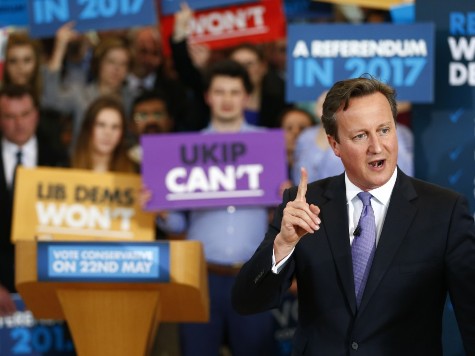From Reuters. Written by Nicholas Wapshott, who is the author of Ronald Reagan and Margaret Thatcher: A Political Marriage.
Establishment Republicans have been delighted by the victory of Thom Tillis, their favored candidate in last week’s North Carolina primary. After expensive advertising campaigns by establishment bagmen like the U.S. Chamber of Commerce and Karl Rove’s American Crossroads, mainstream conservatives believe they have a candidate who can beat Democrat Kay Hagan to win a valuable Senate seat in November.
Some commentators see Tillis’s triumph as a sign that other impending GOP primary races will also deliver electable candidates. Having watched the Senate slip from Republican grasp in 2012, as Tea Party candidates such as Todd Akin in Missouri, Christine O’Donnell in Delaware and Richard Mourdock in Indiana depicted the party as too extreme, they say the Tea Party is in retreat.
Not so fast. The experience of conservative parties elsewhere suggests that when pragmatists triumph over dogmatists, the dogmatists either regroup and go on to overwhelm the moderates, eventually making the party their own. Or they set up their own party — and trounce the moderates at the ballot box.
That is happening in Britain. The Conservatives, once Britain’s natural governing party, find themselves about to be pressed into third place in the European Parliament elections. They will be runners-up not only to the Labor Party but also to the populist United Kingdom Independence Party, their ideological nemesis. Like the Tea Party, the Independence Party has set itself up as the true conscience of conservatism.
There was a time when the European left was riven over dogma, with middle-ground Social Democrats jostling with hard-line Socialists. In Britain through the 1970s and 1980s, there was a three-way split, with middle-of-the-road Labor candidates noisily fending off assaults from the far left as well as Social Democratic reformers. This left Margaret Thatcher’s Tories free to win three elections in a row.
In France the left was terminally split between the Socialists and the Communists — to the delight of the conservative Gaullists.
In both Britain and France, the rift on the left has been healed. Having suffered defeat after defeat, the moderates galvanized themselves and either purged their ranks of unelectable dogmatic Socialists or, in France, put their Communist rivals out of business for good. Pragmatism finally triumphed over dogmatism.
While the left was wising up, however, conservative parties on both sides of the Atlantic that used to win elections by giving short shrift to ideology began busily acquiring dogma.
Read the rest at Reuters

COMMENTS
Please let us know if you're having issues with commenting.